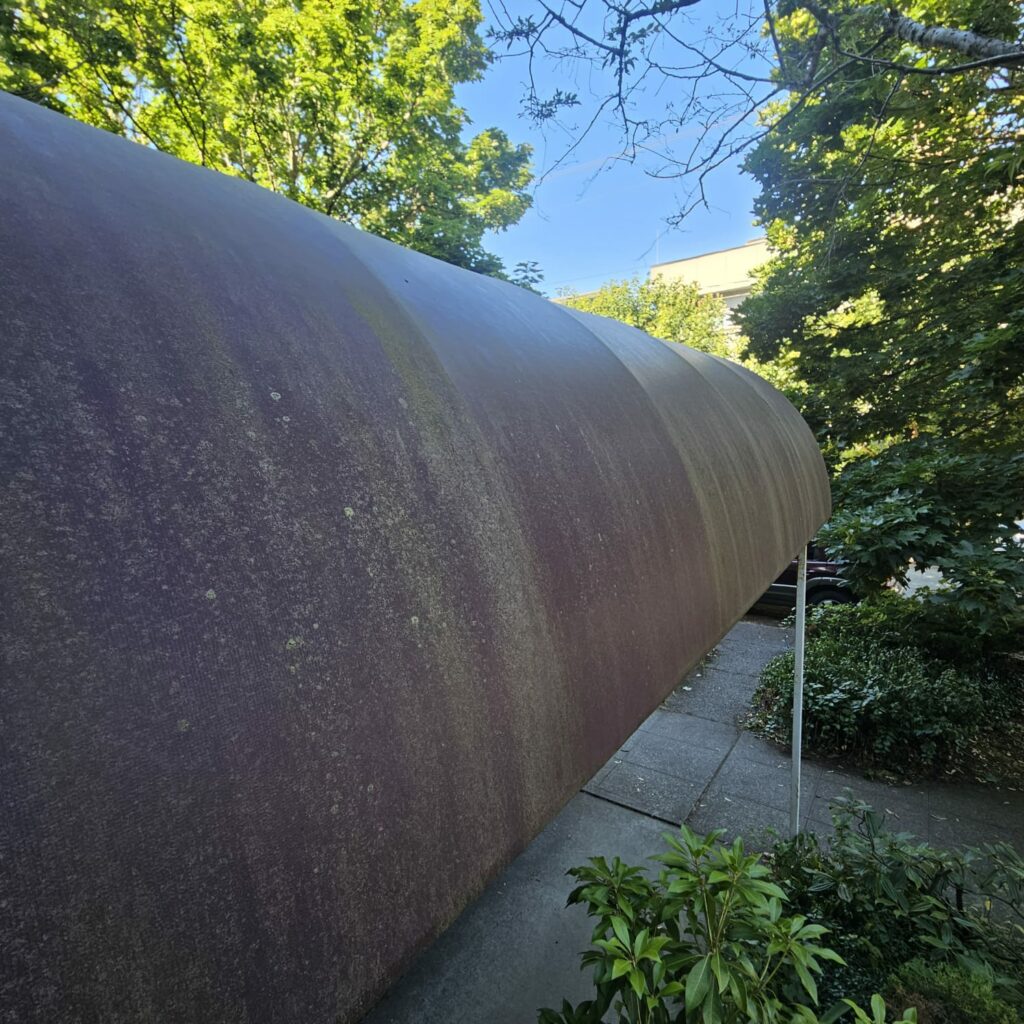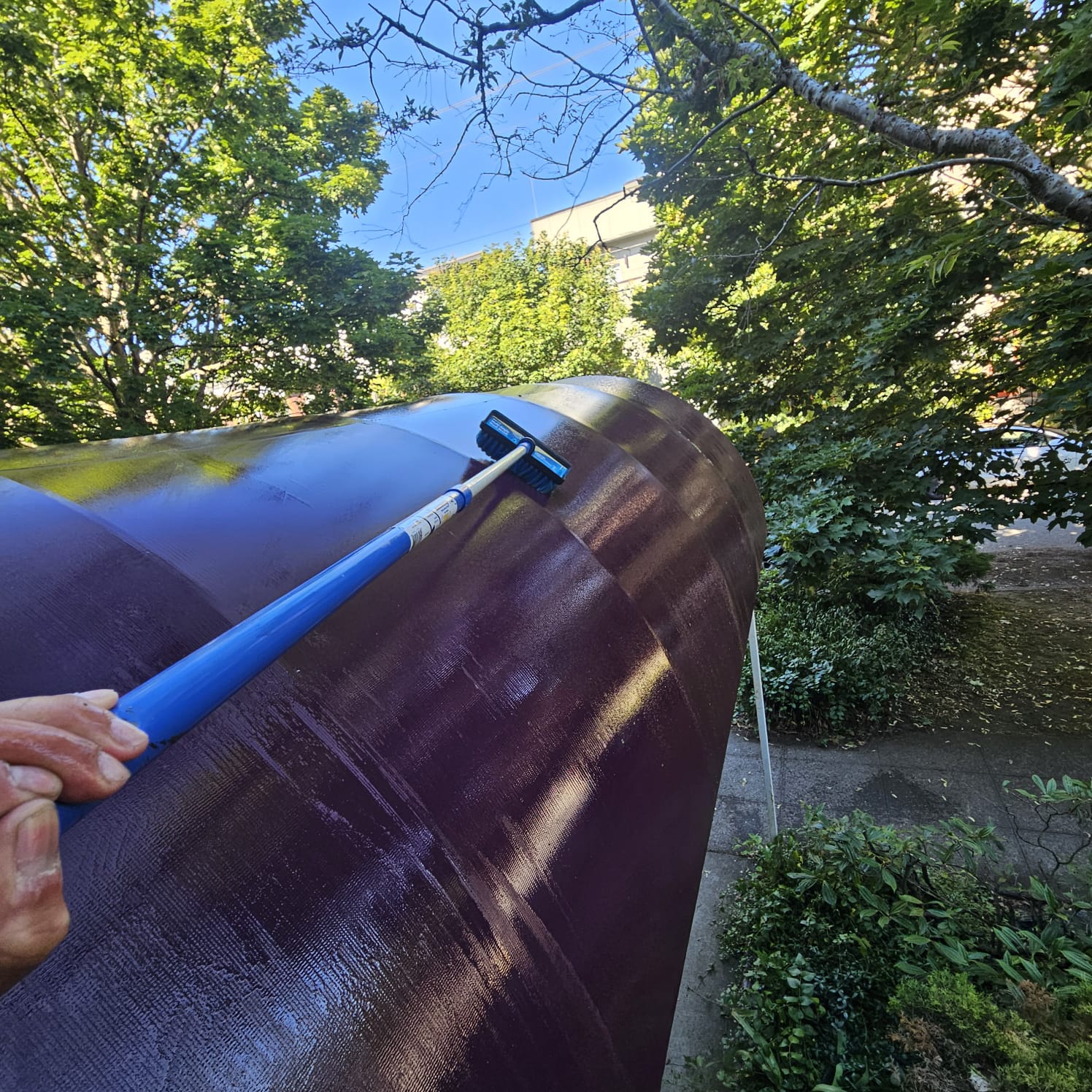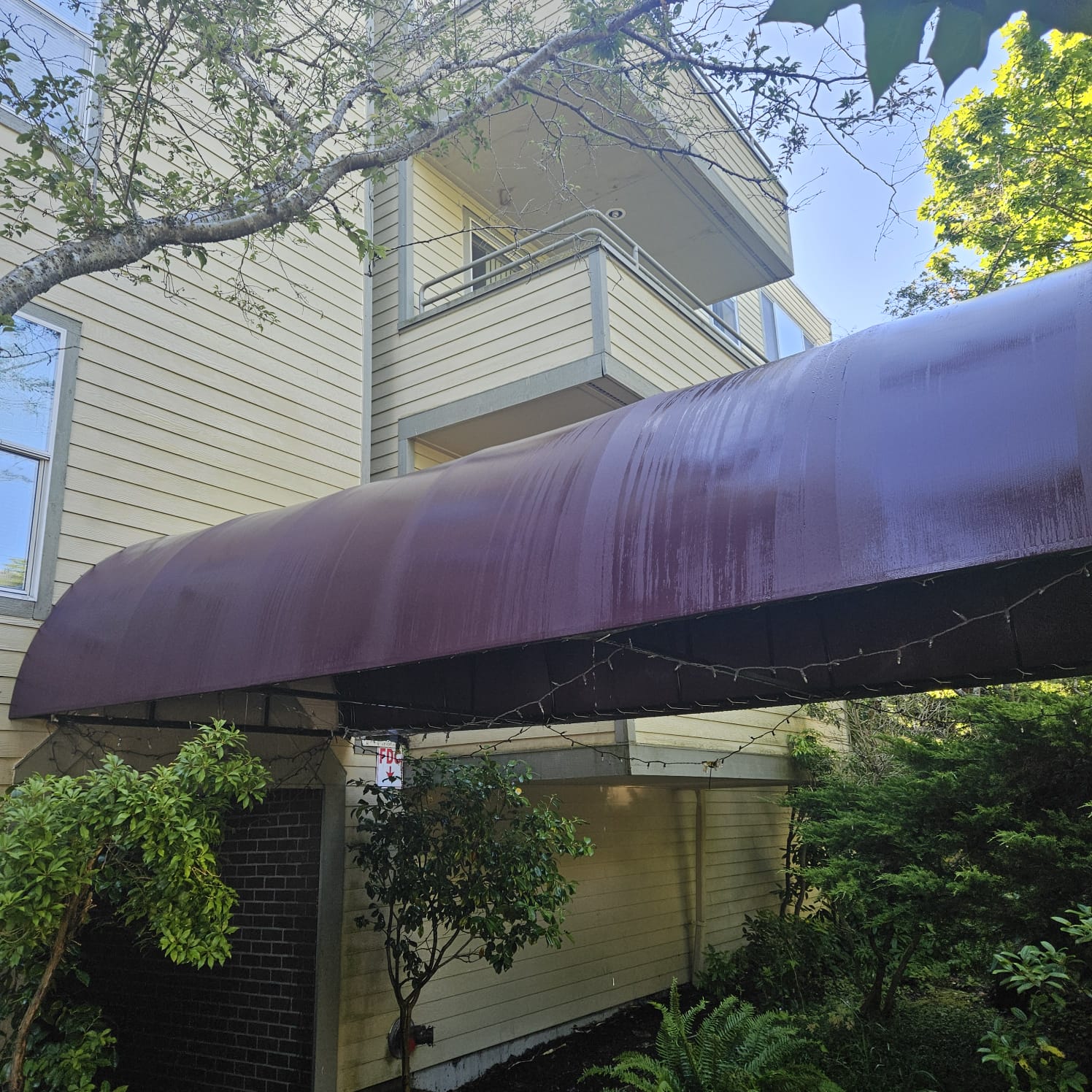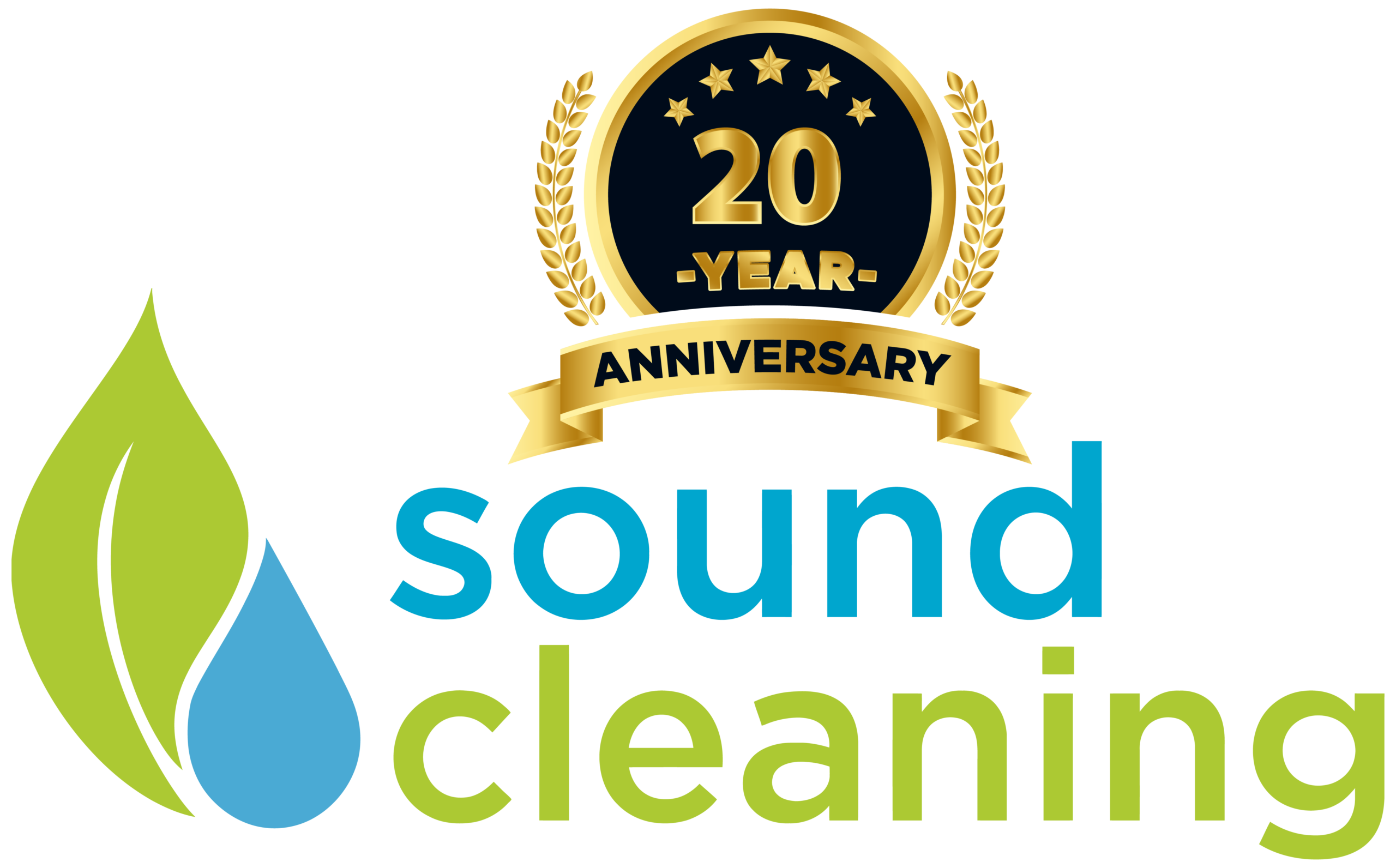The Ultimate Guide to Awning Cleaning in the Pacific Northwest
A clean and well-maintained awning is not only essential for the curb appeal of your property but also for its functionality and longevity. In the Pacific Northwest, where the weather can be particularly harsh with frequent rain and damp conditions, keeping your awning in pristine condition can be challenging. However, neglecting your awning can lead to mold, mildew, and structural damage, which can be costly to repair. To help you keep your awning looking great and functioning properly, here are four essential tips for maintaining a great looking awning all year round.
Regular Inspections
Regular inspections are crucial for identifying potential issues before they become major problems. Check your awning at least twice a year, ideally in the spring and fall, for signs of damage such as tears, mold, mildew, or sagging fabric. Addressing these issues promptly can prevent further damage and extend the life of your awning.
Cleaning Techniques
Proper cleaning is vital for removing dirt, debris, and organic matter that accumulate on your awning over time. Leaves, twigs, and other debris can trap moisture, leading to mold and mildew growth, which can deteriorate the fabric. For fabric awnings, Sound Cleaning uses a soft-bristle brush or a low-pressure power washer to gently clean the surface. Avoiding harsh chemicals, as they can damage the material and harm the environment. Mild soap and water are usually sufficient for regular cleaning. For stubborn stains or mold, consider using a specialized awning cleaner.
Mold and Mildew Prevention
The damp climate of the PNW can make mold and mildew a common problem for awnings. These organisms can cause unsightly stains and damage to the fabric. To prevent mold and mildew growth, ensure that your awning is dry before retracting it. Regularly contacting a professional cleaning company to apply a mold and mildew inhibitor will help protect your awning. These products and professional services create a clean routine that help prevent growth and can keep your awning looking fresh longer.
Trimming Overhanging Branches
Overhanging branches can deposit leaves and other debris onto your awning, promoting mold and mildew growth and causing physical damage to the fabric. Trim back any branches that hang over your awning to prevent this. This will not only help keep your awning clean but also reduce the risk of damage during storms and high winds. Maintaining a clean and healthy awning is essential for preserving its functionality and appearance. Neglecting your awning can lead to costly repairs and reduce its lifespan. By following these tips, and by hiring a professional service like Sound Cleaning to provide regular maintenance, you will enjoy the benefits of a clean and beautiful awning for years to come.




